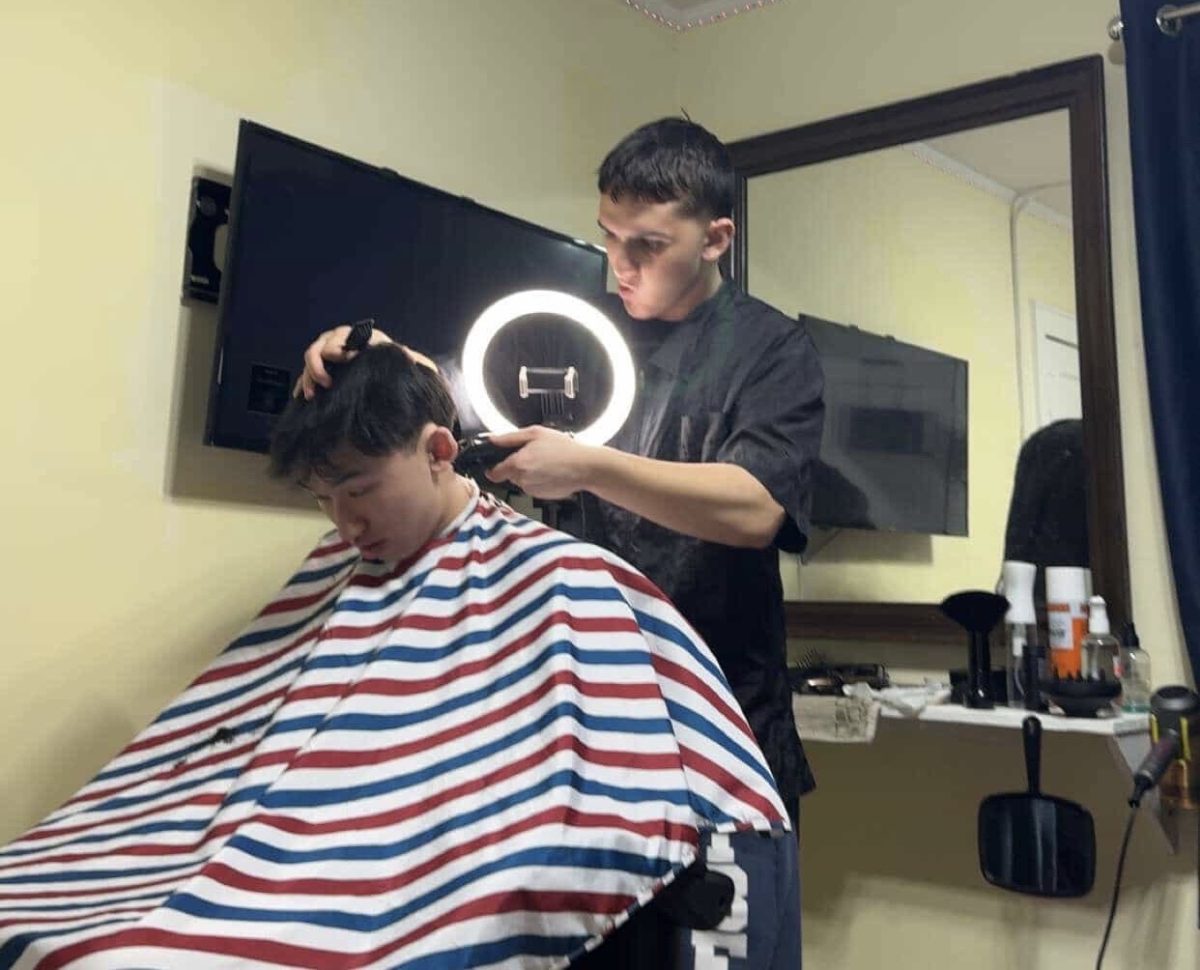
By Noah Sheidlower
Lab coat on, senior Michelle Xing collects data from her algae experiment as she hums a bassoon melody in her head. Once she has gathered enough data, she begins her paper, all the while thinking about an upcoming bassoon performance. Day after day, she constructs her research paper and practices orchestral and solo bassoon repertoire in her free time. And after she submits her paper and finishes performing at a summer concert, Xing realizes that through hard work, she could excel in both science and music.
Xing was recently selected to the New York State School Music Association All State Music Festival along with four other South students; she was also one of six students chosen as a Siemens Semifinalist. Xing attributes these accomplishments to her hard work.
“No principal bassoonist in any orchestra gets to sit and play solos because they barely know the part and show up late to rehearsal,” Xing said. “He sits in that esteemed chair because of the hard work and long hours he put into it.”
Xing, who began learning bassoon four years ago, is currently entering her third year at Juilliard Pre-College as a bassoon major. After trying piano, violin and cello, Xing began bassoon lessons. She entered competitions and within a year auditioned successfully for Juilliard. Xing discovered that music was more of a devotion than a hobby after finishing second at the New York Artists International Competition.
As her musical resume grew, Xing noticed that by putting the same effort into science as she did music, she would see better results. After two years of mastering the basics of science research by studying fruit flies and corn, Xing developed a science experiment that used algae nanofibers to kill bacterial pathogens in water in order to find a solution to global concerns about limited water supplies.
Xing began to see parallels between music and science research during an internship at Stony Brook University. She spent hour after hour reading papers and writing procedures but only a few moments a day conducting the experiment and collecting data. She observed that being in a lab is like playing in a symphony orchestra; although the bassoonist only plays a few melodies throughout the forty-minute piece, the entire piece is meaningful. As a result of sitting “in the cold lab day after day,” she learned that discipline and perseverance applies to music, where knowing what tool to use in an experiment is the same procedure as knowing which dynamic to play in a piece, each minute detail shaping the work as a whole.
“Science research gives me a means to express my passion. Likewise, I’ve found that playing music becomes a means through which I can express myself,” Xing said.
In addition, Xing found that coordinating with others helped her to achieve her accolades. After her South ensemble was selected as a regional winner in the Lincoln Center Chamber Music Society’s Young Musicians Concert, Xing realized that although she could be satisfied performing a solo bassoon piece or working alone in a lab, being part of an orchestra or collaborating with others on research leads to a greater understanding of the big picture experiment or orchestral work.
Using her newfound appreciation for collaborating with others, Xing hopes to pursue science in college and work with colleagues on projects that will help society overcome disease or limited resources. She also looks to play bassoon in college ensembles.
Xing hopes to share with students that taking risks and looking at life from different perspectives leads to more profound results.
“Utilizing a fear filter for your actions is the same as drinking out of a Brita water bottle with a filter that only works half the time,” Xing said. “Remove it, and you’ll find doors opening for you to places that you’ve never imagined.”





